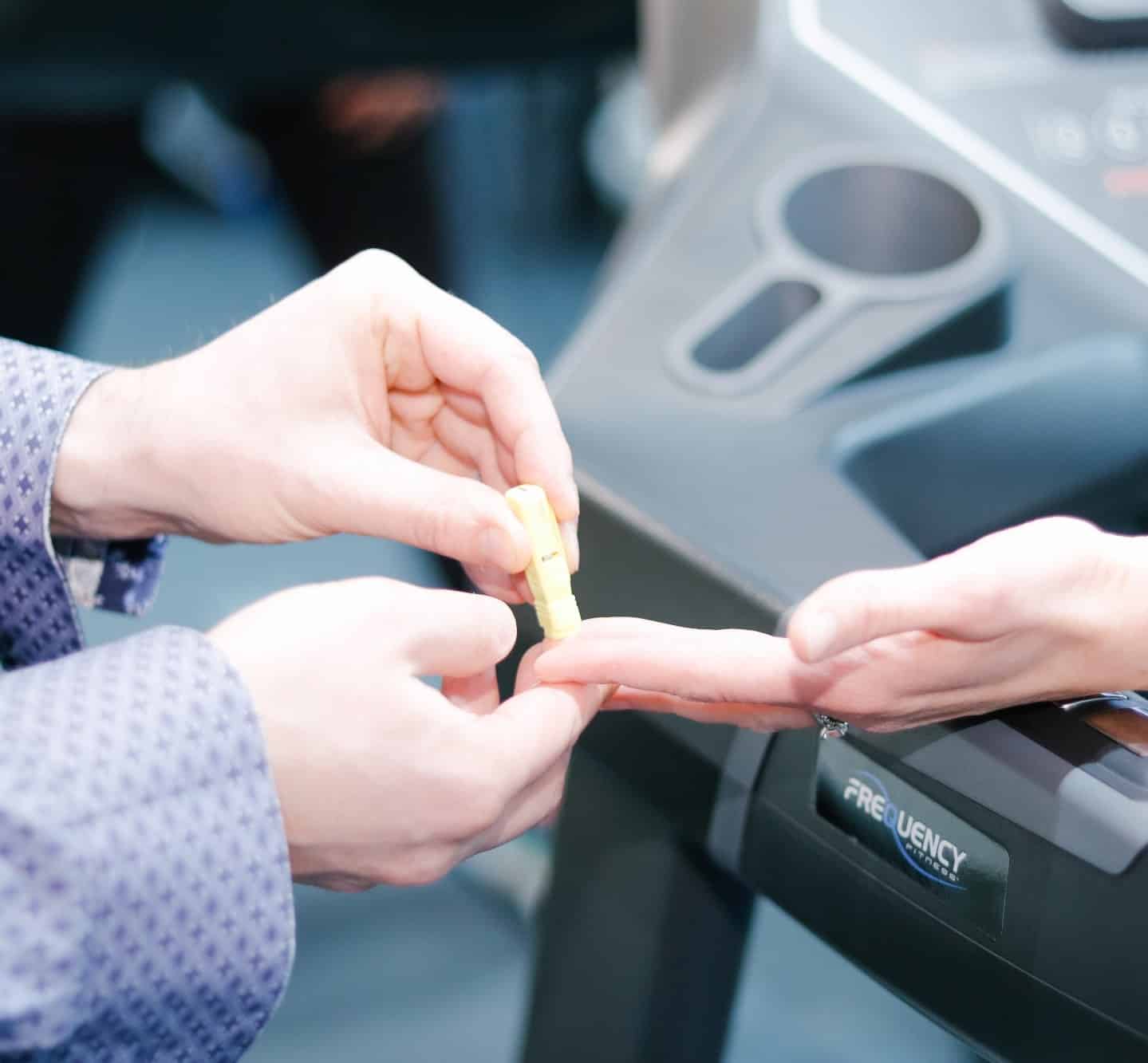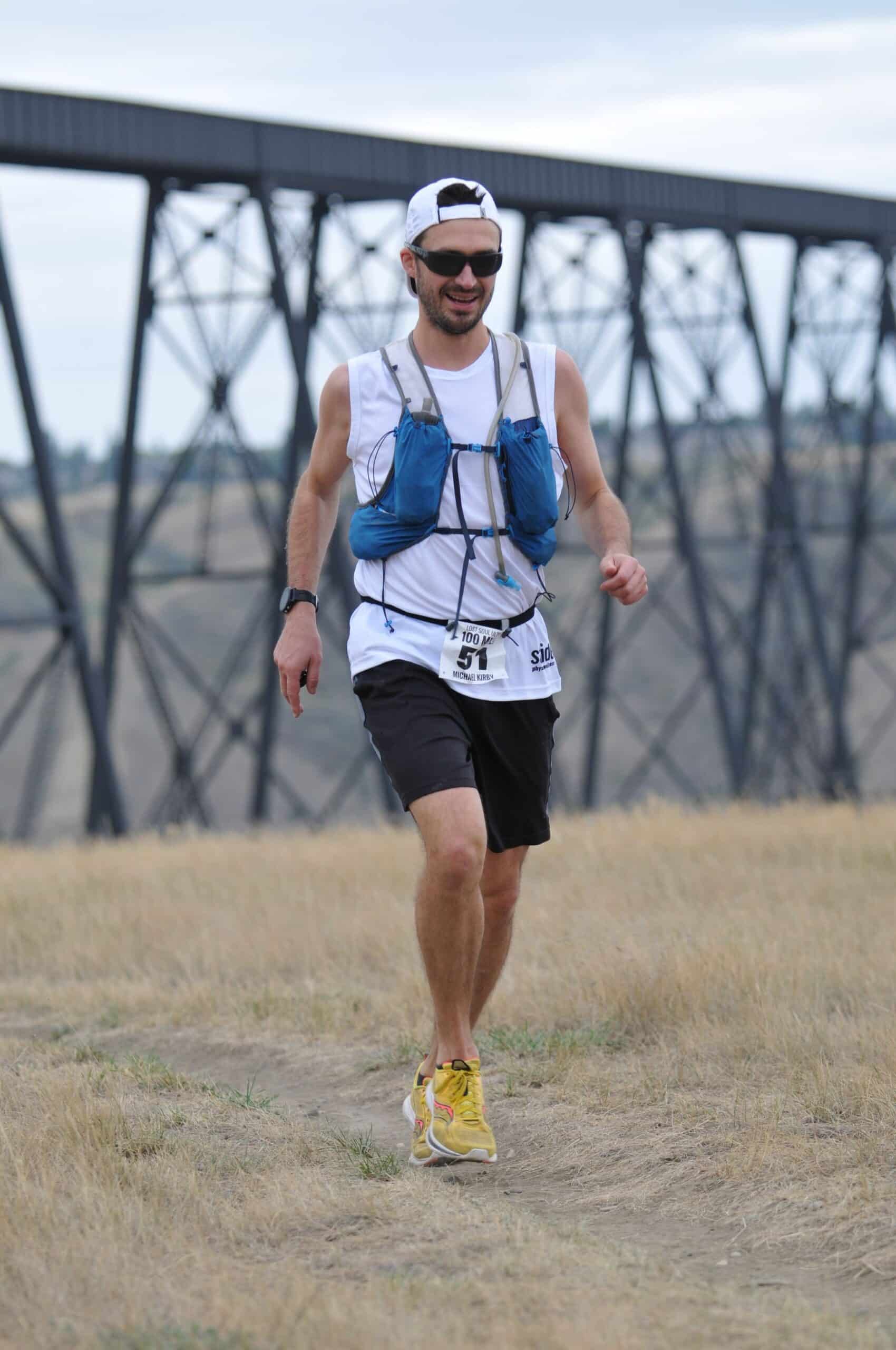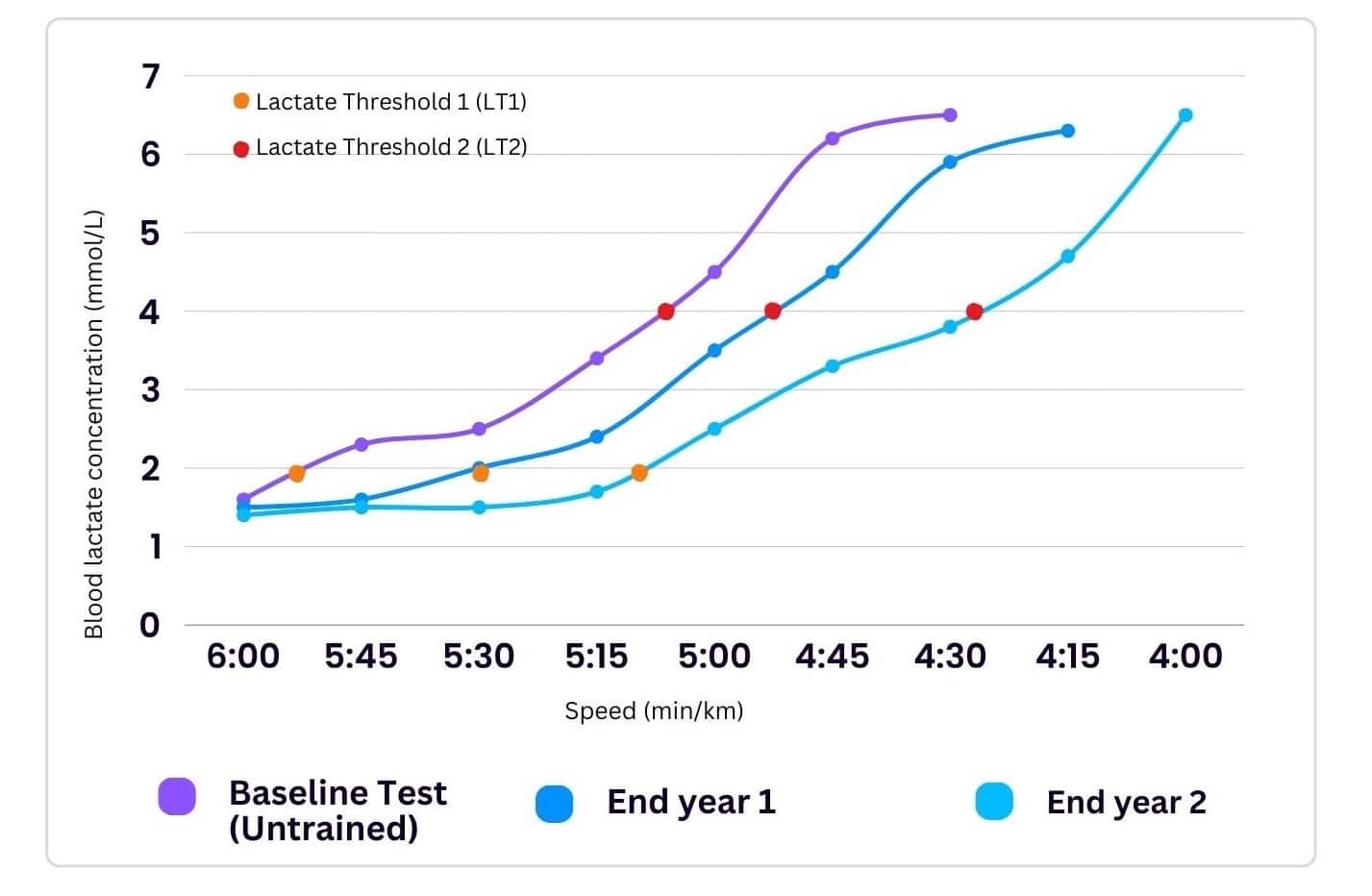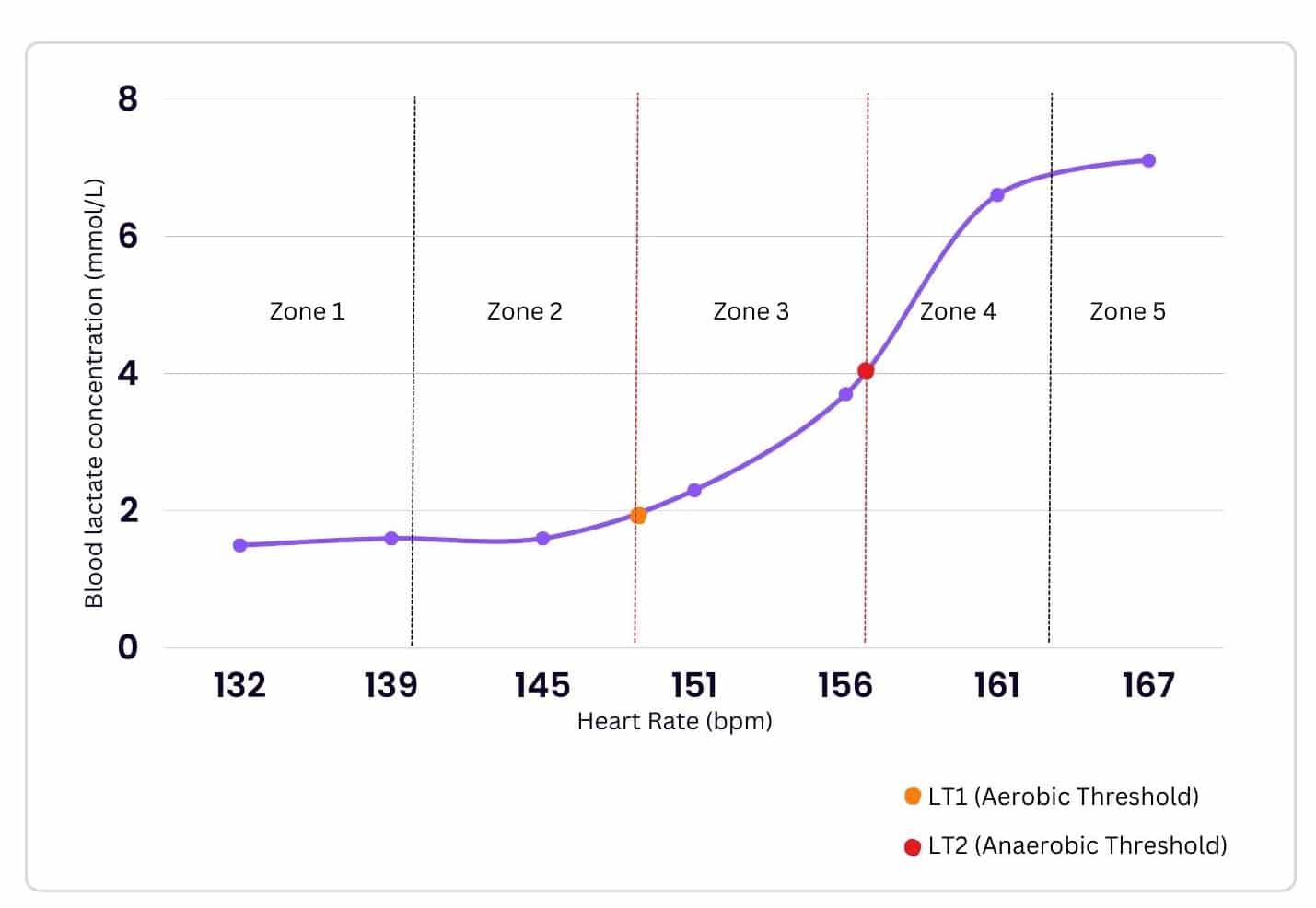
Find Your Training Zones
Train Smarter
Improve Your Performance
Prevent Injuries
Lactate Threshold
Many runners go too hard when it should be easy, and not hard enough when it should be hard. A blood lactate test tells you exactly how hard to go. Blood lactate provides an indirect measurement of the metabolic processes (energy systems) being used to sustain exercise.
Training Zones
By doing a lactate test, you will learn what your training zones are, and how to use them. Each training zone provides a different physiological adaptation, and should be used differently during training.
How do we do the test?
You will be running on a treadmill, and you will have to hop off every 3-4 minutes to take a very small blood sample from your finger (using a lancet). After we take the sample, the speed of the treadmill is increased and you start running again. We continue the process until we have all the data.
Who needs a test?
Runners of all levels are encouraged to do this test. Overuse injuries are very common for runners, and training parameters such as how fast you are running are often to blame. The test provides more certainty behind your running, helps you to improve your performance, and can help you avoid injury.
What do I get from a test?
After the test we will go through the preliminary results. You will be sent a follow-up email with your test results, and an explanation. You will learn what the results mean, and how to use them.
FAQ
+
+
- When performed on a treadmill, the biggest risk of the lactate threshold test is falling. We mitigate this risk by going through the process before the test, and wearing the treadmill safety clip.
- If you have difficulty with needles or seeing your own blood, this test poses a higher risk. You will likely see some blood, your finger is going to get poked (possibly several times) and you are going to be running on a treadmill. If you are known to feel unwell with blood or needles, this test may not be appropriate for you.
- Before taking this test, you should have been screened using a PAR-Q form to assess your readiness for physical activity. If you are on any medications or believe there is any reason that you should not be performing aerobic physical activity, please let your tester know. Medical consultation may be required before performing the lactate threshold test.
- There are risks to any form of physical activity. We mitigate these risks by screening you thoroughly before the test. If there is an elevated risk, we will refer to the appropriate medical provider before performing this test. If there is no known additional risk to performing the test, we can schedule the test and begin!
+
- Your own chest strap heart rate monitor is required. We like to use the equipment that you are going to be using after the test is over. Chest strap monitors are more accurate than any others.
- Water bottle
- Athletic / running clothes (shorts and t-shirt)
+
+
Eat well, get a good night sleep and make sure you are well hydrated on the days leading up to the test and day of.
- Have a normal meal 2-3 hours before the test.
- You may have small snacks leading up to the test. We just don’t want you running on a full stomach.
- Avoid caffeine or other stimulants before the test. If you like your coffee, try not to have any coffee for at least 3 hours before the test.
- Racing: You need to be recovered, so please do not race close to the test date.
- The day before a test: A very light “recovery run”, the day before the test is okay, but nothing more. No other strenuous exercise is recommended the day before the test. Your objective is to be fully recovered for the day of the test.
- Do not train on the day of the test.
+
+
- Wearing the treadmill safety clip is mandatory.
- We will review going on-and-off a moving treadmill before the test commences. The test starts slow, so you will have time to practice for when the treadmill track starts moving faster.
- Your resting heart rate and blood pressure will be taken prior to the test.
- All the intake and screening forms must be completed at least 48-hours before the test date.
+
About Your Tester

Michael Kirby
Education
Master of Science in Physical Therapy from the University of Alberta (2016/17)
Bachelor of Kinesiology (BKin) from the University of Calgary (with Distinction)
Post-Graduate Training
The Running Clinic Certified+ Professional
UESCA Certified Ultrarunning Coach
Loading The Injured Runner (Certificate)
Certificate in Cognitive Behavioural Therapy (Level 1)
Licensed to Order Diagnostic Imaging
Licensed to Perform Dry Needling / IMS
Licensed to Perform Spinal Manipulations





